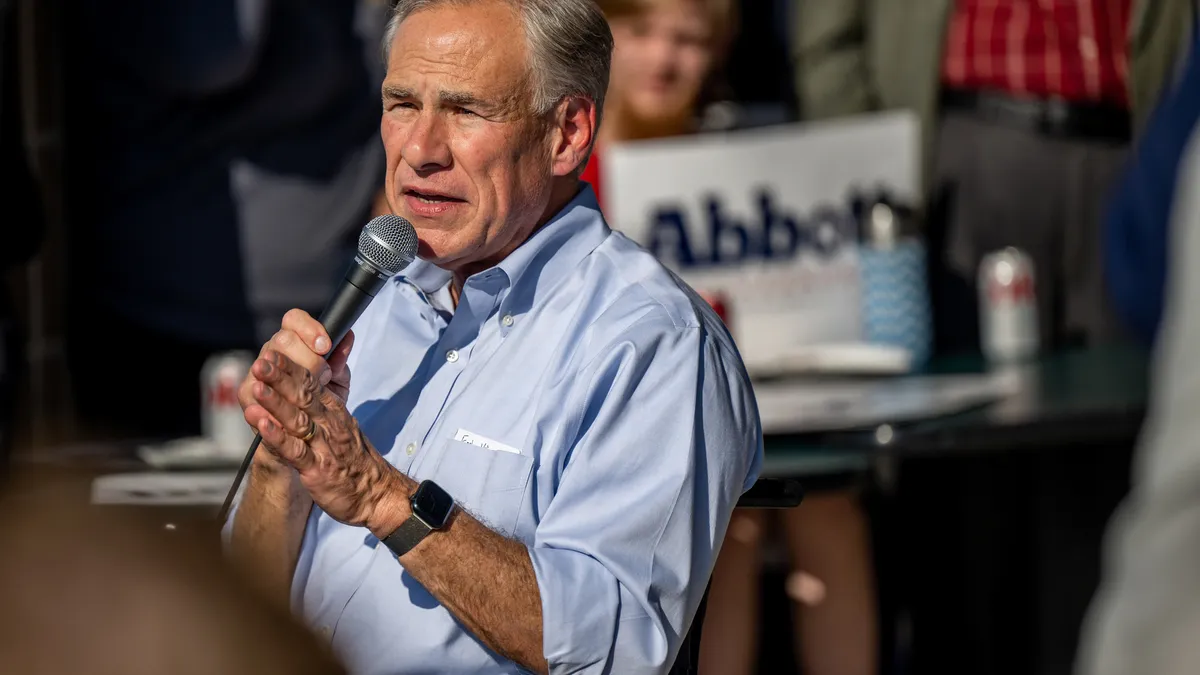In Texas, the anti-DEI dominos are falling, in a design constructed by Gov. Greg Abbott. In February memos to state agencies and public universities, Chief of Staff Gardner Pate announced the administration’s intentions to ban the “innocuous-sounding notion of diversity, equity and inclusion” — on the grounds of reducing identity-based discrimination. Just a month later, the University of Houston leadership said it will not use DEI initiatives in its hiring practices.
“In order to ensure compliance with state and federal law, we will not support or use DEI statements or factors in hiring or promotion anywhere in the University of Houston System,” UH Chancellor Renu Khator said in a March 3 email obtained by HR Dive. She added that UT’s system “recognizes the importance of and adheres to the practice of providing all prospective and current employees and students with equal opportunity” in school and work.
“The System also seeks to foster an environment free from discrimination,” she said.
Also emphasizing UH’s commitment to compliance, Shawn Lindsey, associate vice chancellor and associate VP of media relations told HR Dive via email the memo was “a reminder” of UH policy and “that using DEI statements has become a disfavored practice.”
“Discrimination is antithetical to our core values, and our employment policies and practices are consistent with these laws,” Lindsey said. “We have no offices, departments or programs promoting discrimination in the guise of diversity, equity and inclusion.”
If HR pros can learn anything from the ripple effect of government, it’s that mandates can come down quickly and of course, compliance is expected. Shortly before UH, Texas A&M University leadership announced that the institution would also revoke its diverse hiring practices. “No university or agency in the A&M System will admit any student, nor hire any employee based on any factor other than merit,” Chancellor John Sharp said in a March 2 statement. The chancellor “immediately ordered all A&M System institutions to review their employment and admission practices” to confirm their compliance.
“Using DEI statements has become a disfavored practice.”

Shawn Lindsey,
University of Houston's associate vice chancellor and associate VP of media relations
Sharp said he was satisfied with TAMU’s adherence to Abbott’s Feb. 6 memo — which nudged all state agencies to eliminate DEI from hiring practices, he said. The chancellor then expressed a further desire to “make our expectations clear and consistent,” and issued his own guidance to ensure the institution could “speak with one voice on this issue.”
Additionally, Kevin Eltife, chair of the University of Texas System Board of Regents, confirmed at the top of a Feb. 22 board meeting that the system would also be recanting its DEI commitments, in compliance with the state.
“The topic of DEI activities on college campuses has received tremendous attention nationally and here in Texas. To be clear: We welcome, celebrate, and strive for diversity on our campus with our student and faculty population,” Eltife, an Abbott appointee, said. “I also think it’s fair to say in recent times, certain DEI efforts have strayed from the original intent to now imposing requirements and actions that, rightfully so, raised the concerns of our policymakers.”
These public institutions are coming down hard on DEI and visibly so, just like the approach of the governor’s office in eliminating diverse hiring initiatives. On Feb. 13, Texas Lt. Gov. Dan Patrick named “banning discriminatory ‘DEI’ policies in higher education” one of his top 30 priorities for 2023 — alongside banning childrens’ exposure to drag shows and banning critical race theory in higher education.
The double layer of compliance regarding DEI bans is worth noting: another priority identified by Patrick was removing judges and district attorneys who refuse to follow Texas law.
Amid this news, sources recently told HR Dive that DEI may be shifting shape toward “employee experience” — an effort that still centers inclusion and belonging and, they said, is worth considering. A diversity expert recently acknowledged to HR Dive that DEI conversations can be “off-putting” to some audiences. Her approach then is to rework her framing of inclusion, belonging and diversity solutions, based on the employer.












